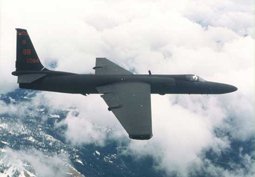A new study published in the medical journal Neurology found that U.S. Air Force pilots of U-2 high-altitude planes are at a higher risk of developing brain lesions as a result of decompression sickness.
Also known as ‘the bends,’ decompression sickness is often experienced by SCUBA divers. The condition takes place when external pressure on the body leads to the development of bubbles within the body’s tissues.
The study, centered around this issue, recruited 102 U-2 pilots and 91 non-pilot participants between the ages of 26-50. Each participant underwent an MRI brain scan to measure brain lesions associated with memory loss.
Results among pilots showed nearly 300% more instances of brain legions than non-pilots. Findings also suggest that pilots who regularly fly at altitutes above 18,000 feet are at higher risk for decompression sickness, and such cases have trippled in the last 7 years.
Neurologist and SCUBA diver, Dr. Adam Bender has developed potential treatment strategies including oxygen treatment, reducing time for pilots at these altitudes and altering pressurization within the cabin of U-2 planes.
Now that the problem has been identified, doctors, scientists and engineers can now begin working to prevent, reduce and treat decompression sickness among Air Force pilots.



